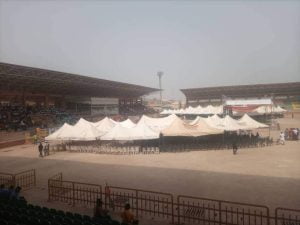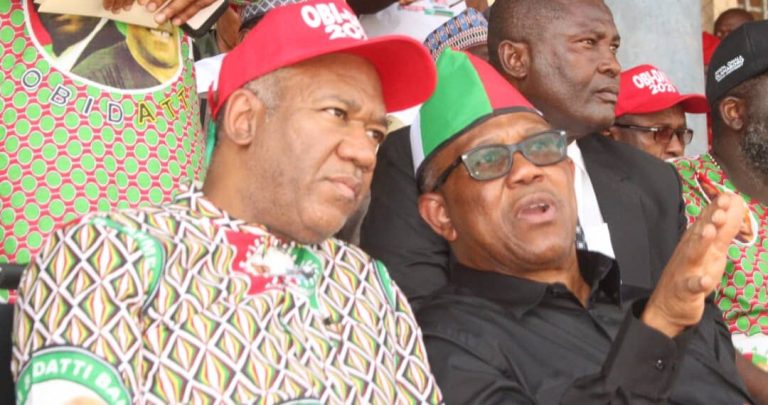As Nigeria draws closer to the general elections, the initial bravado of ‘Obidients’, the supporters of Labour Party’s presidential candidate Peter Obi, may have given way to frustration and despondence following a streak of poorly attended rallies despite public offers of inducements.
Although the Labour Party has always struggled to translate its stage-managed online crusade into meaningful — and far more electorally useful — grassroots followership, things came to a head this week in Ekiti State where the party’s grand rally was shunned by locals despite assurances of free transportation to and fro the event and a promise of cash inducements for each attendee. The failure forced the postponement of its Ondo rally previously scheduled to hold on Friday, the 6th of January.

Sources within the party are confirming to PODIUM REPORTERS that the motivation of the early days has slumped, particularly among its rookie mobilizers who are increasingly accepting the candidate’s unpopularity with regular Nigerians and the near impossibility of rallying support for him with the election just weeks away.
“Our people on the ground have lost their initial motivation and optimism. They are complaining that people just don’t know Peter Obi and they are not willing to entrust their votes to an unknown candidate who is running a fringe party without any history or record of governance and performance,” one of them said.
“The challenge we are facing now is to get them to continue, at least until Election Day,” she continued. “They have totally lost hope and resigned to fate that we are going to lose the election badly. They are also not happy that despite sourcing large sums in public donations, the leadership of the party has not been supportive – instead, they are storing the funds in personal accounts for personal use.”
Obi’s campaign has been beset with a series of controversies including allegations of nepotism and financial misappropriation. Notably, its former director-general, Doyin Okupe, was convicted by the court for joining in the diversion of arms funds whilst serving in the Goodluck Jonathan presidency. His conviction came amid an ongoing scandal in which he was accused by his state’s chapter of the party of stealing funds meant to bribe people to attend its southwest mega rally.
Similarly, the candidate himself Peter Obi has been repeatedly accused of running a one-man show with allies exclusively sourced from the eastern part of the country where he is from. Obi also tainted his campaign with a divisive message which targeted the Yorubas when he said during an interview that the south-westerners were wary of an Igbo ascendancy that his presidency would facilitate through the delivery of port access among others.
These unresolved controversies, including a damaging allegation that Obi settled Okupe’s criminal conviction with party funds, have drained support for the campaign and dented its legitimacy among the few Nigerians aware of Obi’s unlikely bid.
Its failure in Ekiti was preceded by a similar disappointing outing in Kogi State where it barely filled a single spectator stand inside the stadium it rented for its rally. Like Ekiti, its cash offers were refused by the people and the meagre crowd that showed up lacked neither knowledge of Obi nor expressed readiness to elect the Labour Party in any contest in the state.
Although an endorsement from Nigeria’s former president Olusegun Obasanjo generated media coverage for Obi this week, its significance has been downplayed by Obasanjo’s own poor standing with large segments of the country. The PDP president angered Nigeria’s civil society with his infamous attempt to pervert the country’s democracy with a surreptitious amendment of the constitution to allow continue in office for a third term.
Many also regard the former president as a narcissistic political figure obsessed with control. His confession that his support for Obi is due to the candidate possessing a ‘string’ for controlling his actions affirmed the fears of voters that Obasanjo was merely seeking a puppet through which he would fulfil his long-lasting dream to govern the country yet again.
It is unclear how Obi plans to manage the dispiritedness and frustration spreading within his camp. Some have questioned the sincerity of his run, with allegations that his foray into the Labour Party was merely to set the stage for a grander return to the PDP after establishing his popularity with a segment of Nigerians – even if an inconsequential electoral minority.

